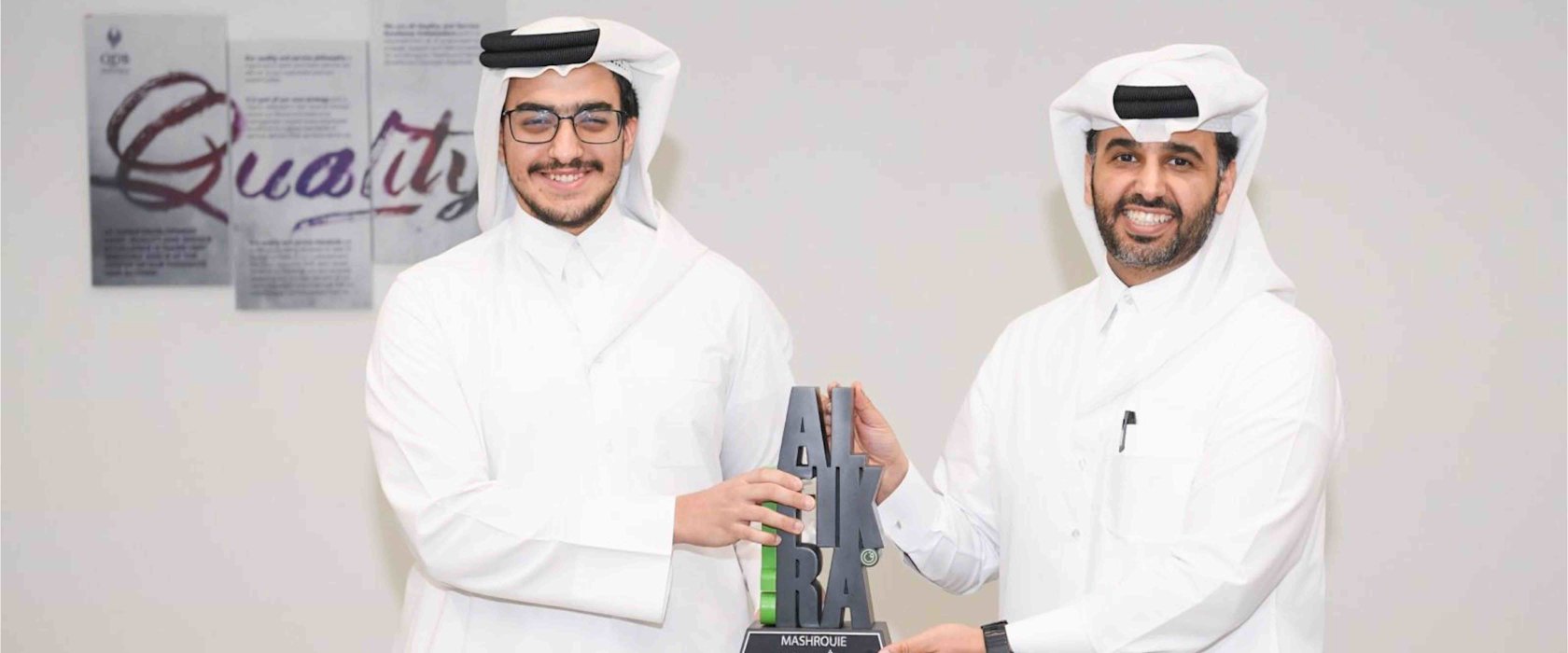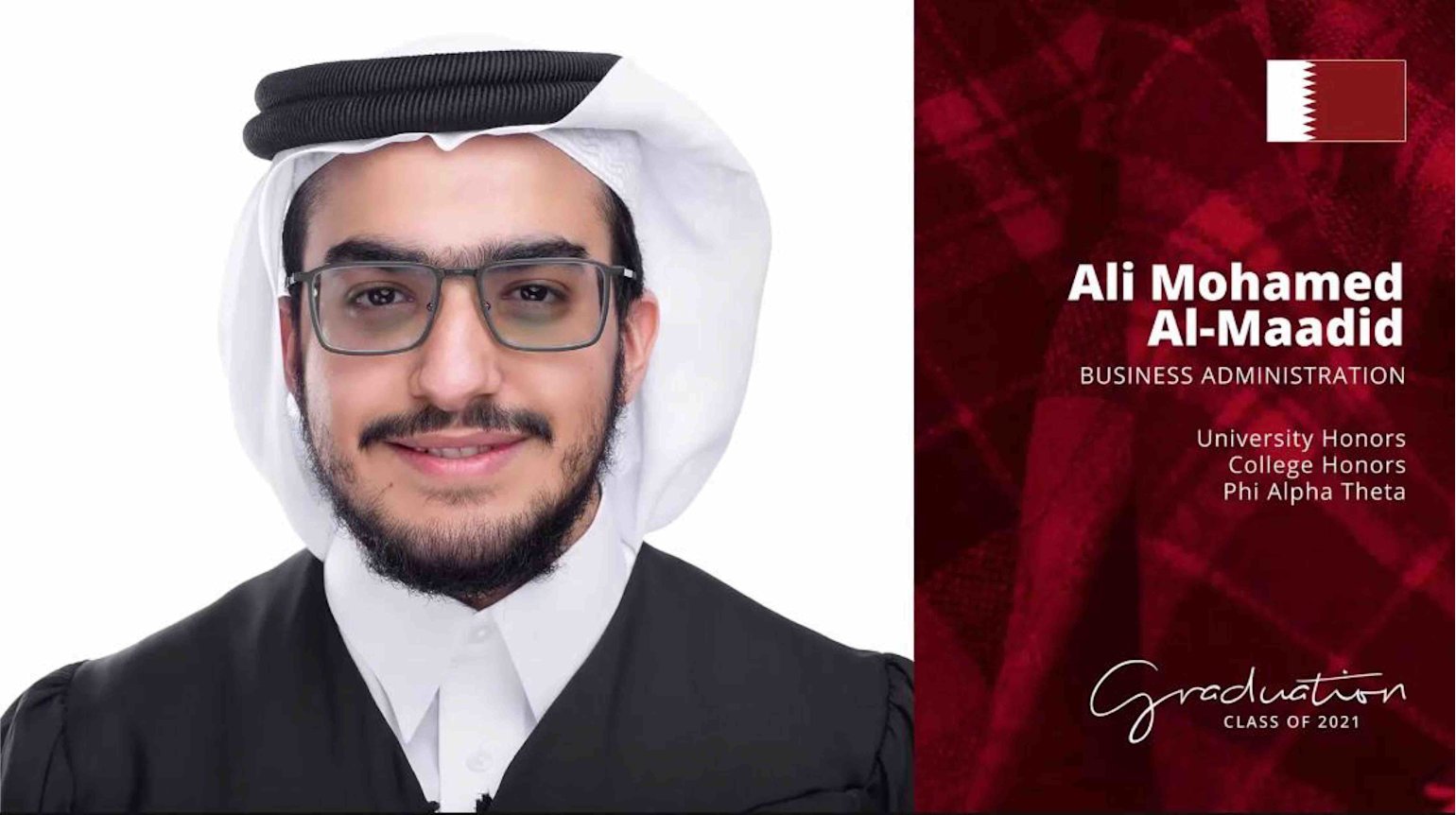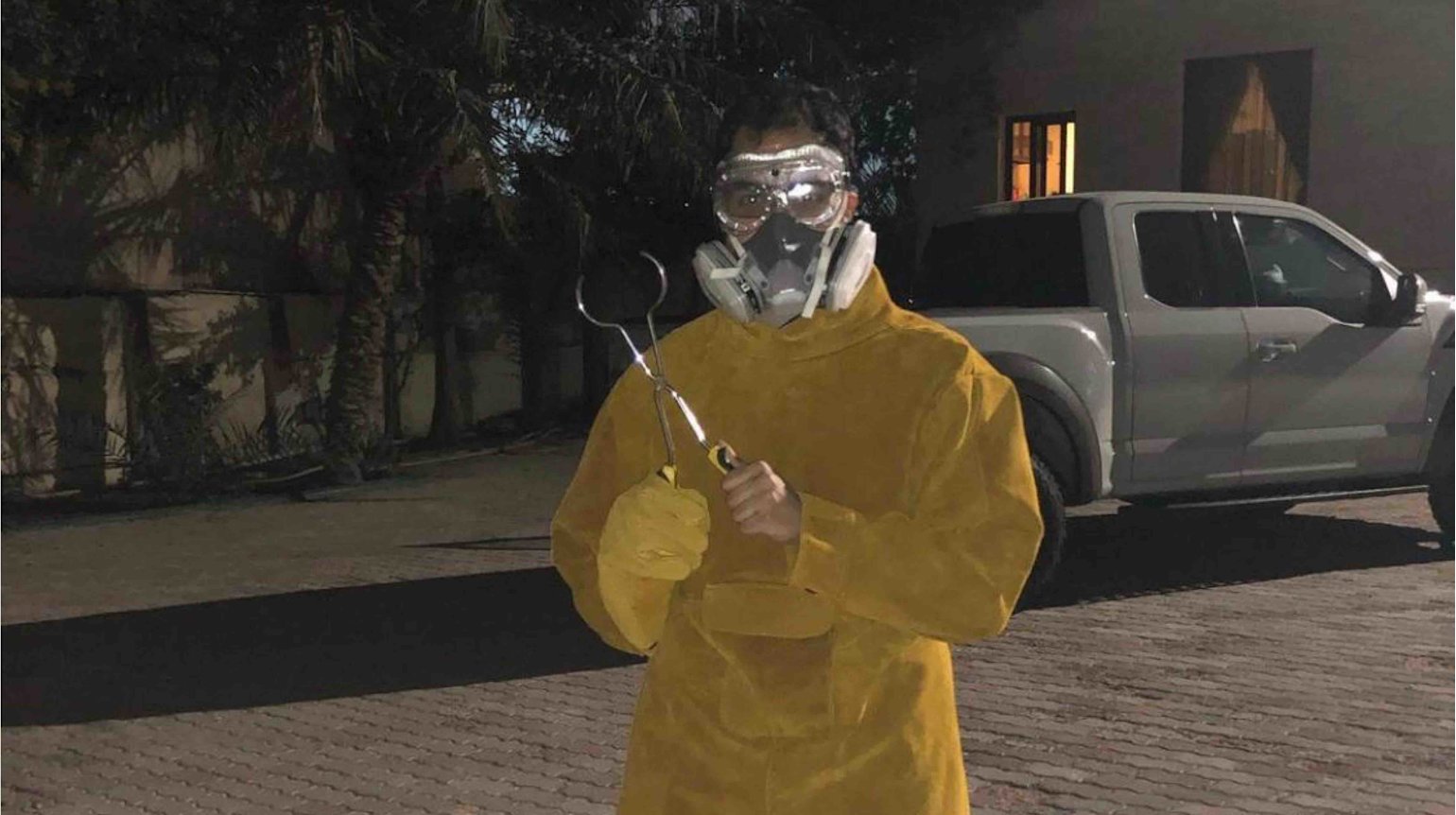Coronavirus (COVID-19) Updates
For the latest COVID-19 information and updates from Qatar Foundation, please visit our Statements page

Ali Al-Maadid talks about how QF and its partner university at Education City helped him develop two entrepreneurial projects in Qatar
Ever since Ali Al-Maadid was young, he was surrounded by entrepreneurial figures, such as his father and grandfather, who were changing the entrepreneurial landscape of Qatar and enhancing the lives of people.
This contribution to society and dedication to development was what inspired Ali to choose business administration and continue in the footsteps of his family’s legacy of entrepreneurship.

CMU-Q Class of 2021 graduate Ali Al-Maadid.
Al-Maadid, a graduate of Carnegie Mellon University in Qatar (CMU-Q), a Qatar Foundation (QF) partner university, explains why how CMU-Q helped him get on the path entrepreneurship.
“Since my first year at the university, I wanted to start a business project," Al-Maadid says.
During his four years of study at the university, Al-Maadid was able to develop two projects in the area of sustainability: the first based on the idea of building a factory that recycle metals; and the second to make changes in the ways homes are built to make their construction faster and cheaper.
I wondered: can't we make products locally that are better than those we import?
“I wondered – can't we make products locally that are better than those we import? This thought-process fueled my idea to manufacture a purely Qatari product,” Al-Maadid says.
The idea for the sustainability project came about because of the amount of junk metal that is deposited into landfills every day, according to Al-Maadid. During his research, he discovered that some materials like metals are 100 percent recyclable. This led to him experimenting with micro-scale recycling using real junk from his backyard for over a year.
“The experiment was very successful, so, I decided to upgrade my project to industrial level, using state-of-the-art technology and automation to optimize my operation. I hope to start recycling by the end of this year.”
The campaign was highly successful because it built trust between the business and customers
As for the second project, Al-Maadid wants to revolutionize the way we build our homes, using modern methods and technologies such as software engineering, automation and precision.
“This method will decrease cost and lead time while also keeping the same structural integrity and quality. Although this technology is not new in Qatar, it was not introduced well into the market; so potential customers did not fully understand the benefits of this new technology over traditional methods,” he says.
“Using what I learned in the marketing course at CMU-Q, I started a marketing campaign that explained this technology simply, succinctly, and transparently. The campaign was highly successful because it built trust between the business and customers.”
This will allow me to really leverage the economic boom that usually follows a period of economic lull
Al-Maadid says that his time at CMU-Q and at QF has helped him understand all the essential elements of entrepreneurship such as accounting, financial management, marketing, operations, organizational behavior, etc. “The training courses that Professor George White provides to students have been the most beneficial to me, as they are designed to provide us with ways of thinking,” he says.

Experimenting with micro-scale recycling has led to Al-Maadid launching a new sustainability-focused project.
For an entrepreneur with two startups at early stages, the pandemic posed as an opportunity for improvement. “This period is giving me time to improve my execution plans. This will allow me to really leverage the economic boom that usually follows a period of economic lull.”
As Al-Maadid continues to work on his startups, pursuing his entrepreneurial calling, he says he is confident in his abilities to bring about a change in Qatar and the world, “because I seek to be a student of change in my own way,” he says.

